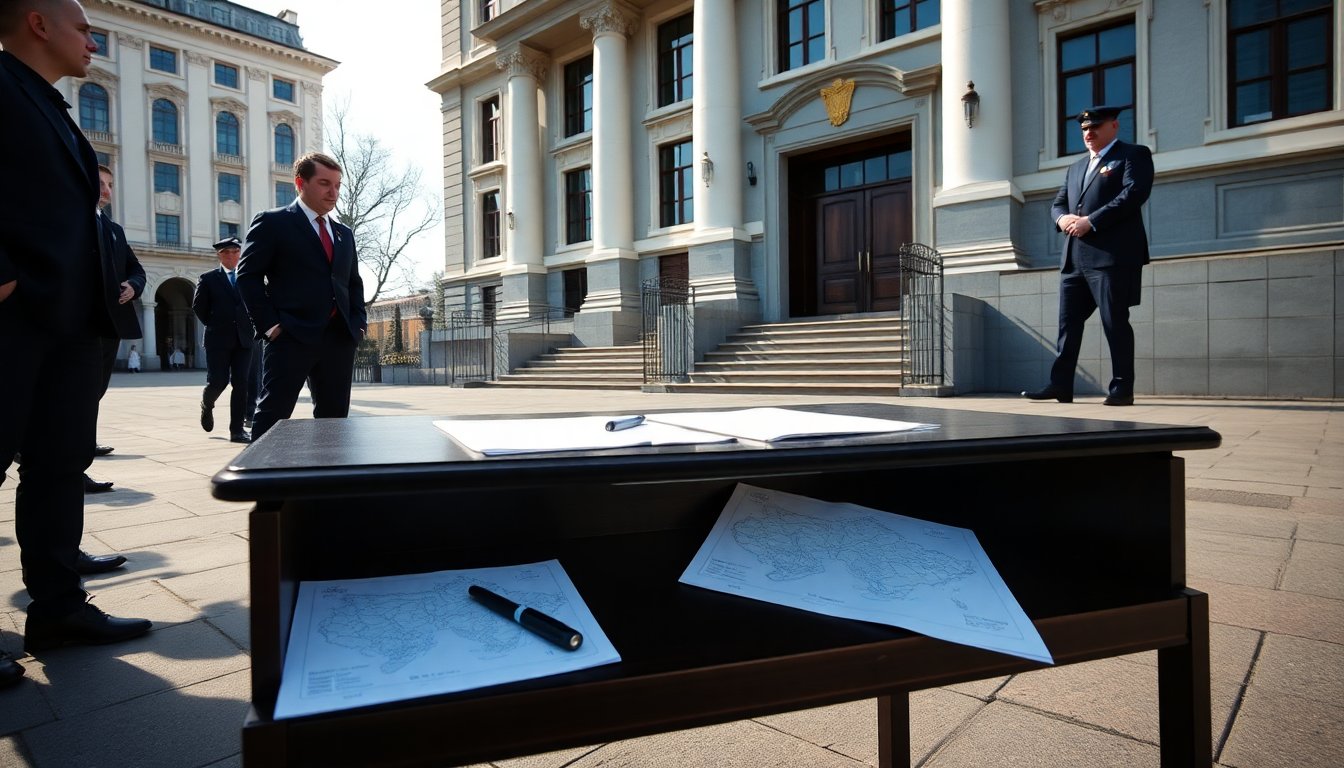Table of Contents
In a pivotal moment for Ukraine, President Volodymyr Zelenskyy has publicly expressed the gravity of the choices his nation faces. As the conflict with Russia continues, U.S. President Donald Trump has introduced a new peace plan, raising concerns about the implications for Ukraine’s sovereignty and alliances.
Zelenskyy’s recent speech outside his office emphasized the precarious balance between maintaining Ukraine’s dignity and securing crucial support from the United States. He stated, “This is one of the toughest periods in our history, and we are confronted with a choice — either preserve our dignity or risk losing our most significant ally.”
Understanding the U.S. peace proposal
The 28-point plan proposed by the Trump administration has sparked intense debate within Ukraine and among its European allies. According to reports, the stipulations include significant concessions to Russia, such as territorial compromises and limitations on Ukraine’s military capabilities.
Trump has reportedly given Ukraine a deadline to accept this plan, suggesting that failure to comply could jeopardize U.S. military assistance. This has led to a sense of urgency within the Ukrainian government, with Zelenskyy asserting, “I will fight tirelessly to ensure that our dignity and freedom are upheld in any agreement.”
Key components of the peace plan
The plan necessitates that Ukraine cede additional territory, notably parts of the Donetsk region, which would be recognized as Russian territory. Additionally, it proposes that Ukraine limit its military size and forgo joining NATO. On the surface, these conditions seem designed to appease Moscow while offering Ukraine some form of security guarantees.
However, critics argue that such concessions could undermine Ukraine’s long-term sovereignty. Zelenskyy’s administration is under immense pressure to navigate these complex negotiations, especially as Russian military forces continue their aggressive actions on the battlefield.
International reactions and implications
The proposal has not only raised alarms within Ukraine but also among its European allies. Leaders from France, Germany, and the UK have expressed support for Ukraine, emphasizing the need for a peace agreement that respects Ukrainian interests without conceding to Russian aggression.
French President Emmanuel Macron and British Prime Minister Keir Starmer held discussions with Zelenskyy to reinforce their commitment to Ukraine’s sovereignty. They highlighted that while diplomatic solutions are essential, any peace must not come at the cost of capitulating to the aggressor.
A delicate balance of power
Meanwhile, Russian President Vladimir Putin has responded to the U.S. plan by asserting that it aligns with Russia’s demands, although he claims that Ukraine’s government remains resistant to accepting it. This dynamic adds a layer of complexity to the ongoing negotiations, as Ukraine’s military continues to face challenges from Russian offensives.
As the situation evolves, the implications of the U.S. peace plan could have lasting effects not just on Ukraine, but on the broader geopolitical landscape in Eastern Europe. The stakes are high, and the balance of power is shifting, making it crucial for Ukraine to carefully consider its options moving forward.
In conclusion, the path forward for Ukraine is fraught with challenges. Zelenskyy must weigh the potential benefits of a peace agreement against the risks of compromising national sovereignty. As the timeline for decision-making tightens, the Ukrainian leadership remains committed to protecting the interests and dignity of its people.


